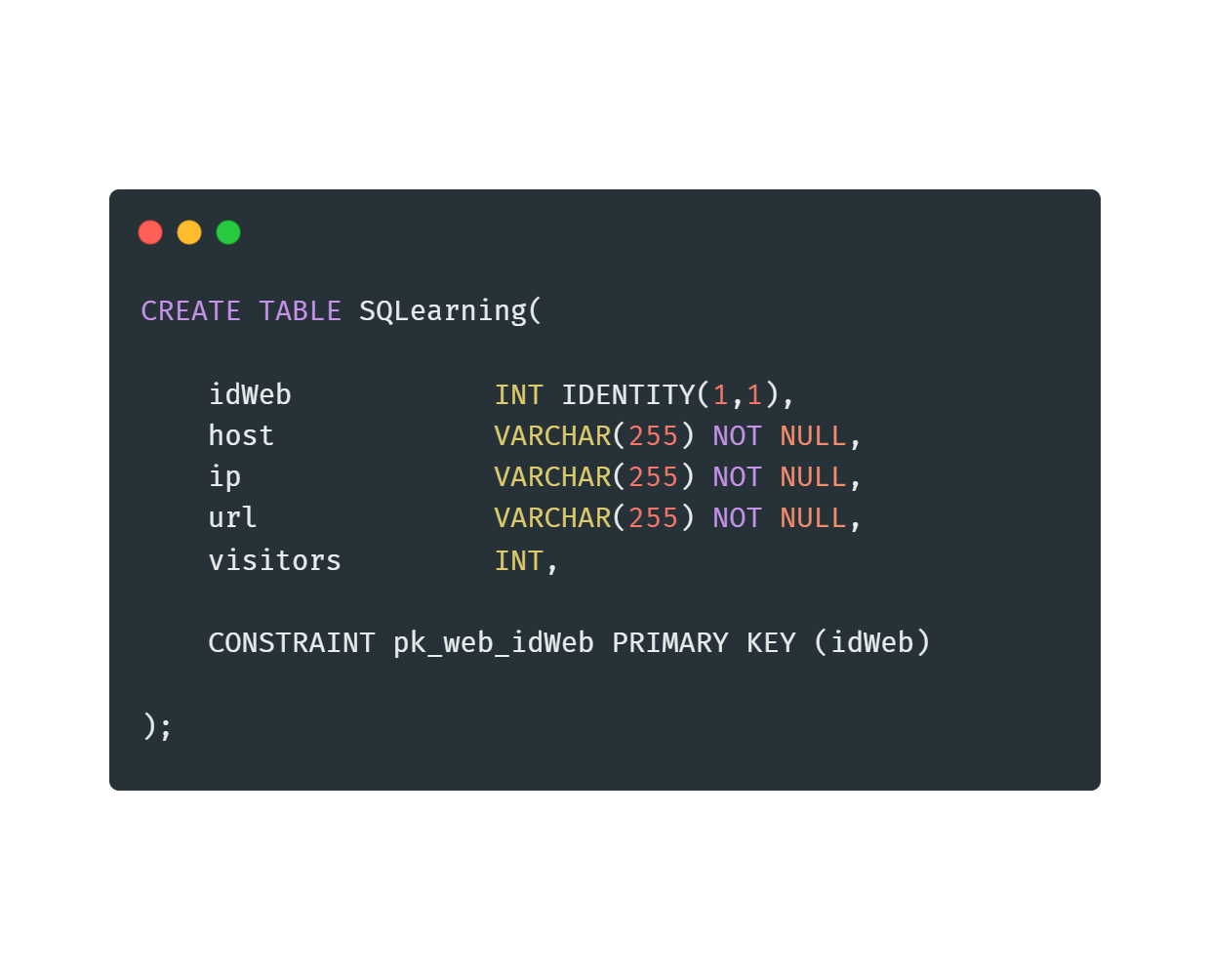Learn SQL and
SQL Server
We will see the characteristics of SQL and relational databases. We will learn how to install and prepare the environment to begin our development proccess

Choose a category and begin to learn
Introduction to SQL
We will see the characteristics of SQL and relational databases. We will learn how to install and prepare the environment to begin our development proccess
Create and manage databases
We will find the basic instructions to develop our databases. Create tables, modify them, insert records...
Query execution
We will learn how to retrieve information from our tables through the SELECT statement. We will see, with examples, how to filter data, order it, group it...
Language elements
We will learn how to use statements that allow us to manage and control the different SQL instructions
Functions
We will learn how to use the most important SQL Server integrated functions and how to declare our own user functions
Advanced elements
We will learn how to use the most advanced elements provided by SQL Server, such as the use of Stored Procedures and Triggers
Frequently Asked Questions
In SQLearning we will learn in a didactic way with replicable examples all the most important concepts of Transact-SQL management, from the simplest to the most advanced ones
What does SQLearning offer?
In SQLearning we will learn in a didactic way,with replicable examples, the most important concepts of handling Transact-SQL, from the simplest one to the most advanced.
Why Transact-SQL and not SQL?
With Transact-SQL we will learn the entire SQL standard, plus the characteristics of said language (Stored Procedures, Triggers,...).
Why SQL Server as an alternative to ORACLE?
The answer largely depends on the needs of each user. However, from SQLearning we facilitate the learning of Transact-SQL since it is used more in small and medium-sized companies while ORACLE is more frequently used in large organizations.
Why is so important to learn SQL?
The use and handling of databases is present in innumerable applications and technologies, which makes SQL one of the most demanded programming languages today.
Who should learn SQL?
Any person who wants to work with data management (analysts, data scientists...), backend-fullstack developers, mobile application developers... In addition, SQL should be learned by anyone interested in the use and management of databases.
Can SQL be used in other programming languages?
Yes, SQL is often used externally from other programming languages. C, Java or Python are some examples.
